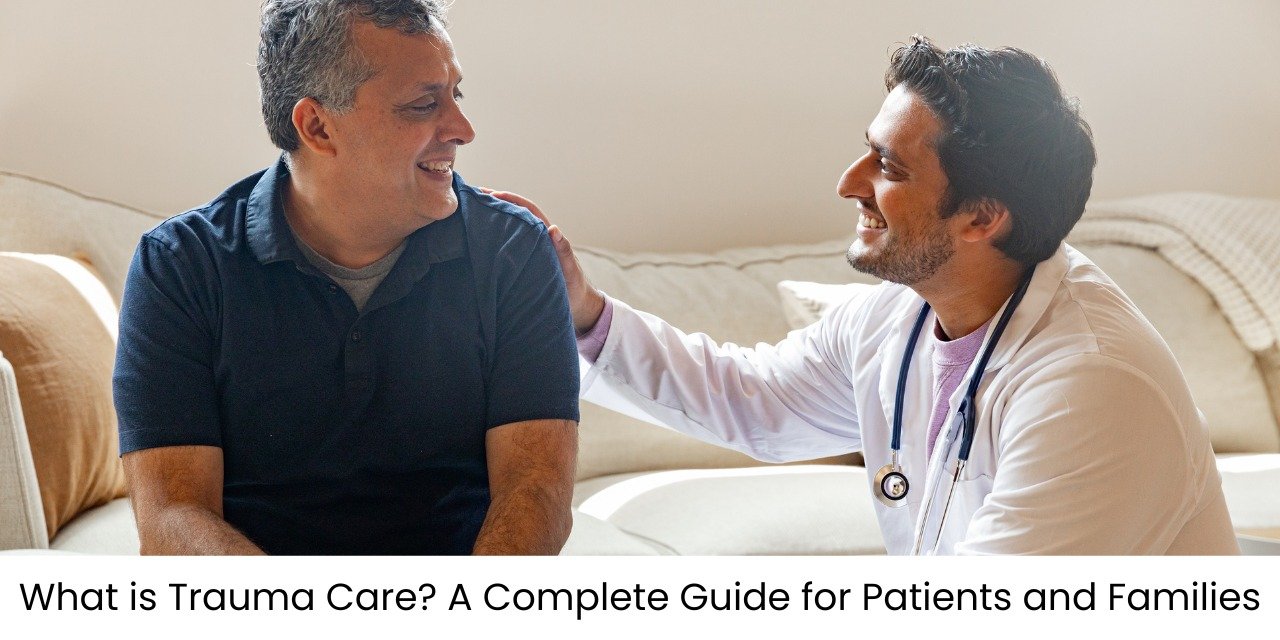Trauma care is a specialized branch of emergency medicine focused on providing immediate and life-saving medical treatment to individuals who have sustained serious injuries due to accidents, falls, violence, or natural disasters. For patients and their families, understanding what trauma care involves can be crucial during critical times.
In this guide, we’ll break down everything you need to know about trauma care — from the moment an injury occurs to the stages of recovery.
Understanding Trauma: What Does It Mean?
Trauma refers to a severe injury that can affect multiple parts of the body. These injuries often result from:
- Road traffic accidents
- Industrial or workplace injuries
- Falls from heights
- Assault or violence
- Burns
- Natural disasters
Trauma can be either blunt (e.g., car crash injuries) or penetrating (e.g., gunshot or stab wounds). Such injuries require rapid response and expert medical attention, which is where trauma care comes in.
What is Trauma Care?
Trauma care is a comprehensive system of medical services provided to trauma victims, starting from the site of the injury and continuing through recovery and rehabilitation. It involves coordinated efforts from emergency responders, trauma surgeons, nurses, radiologists, and rehabilitation specialists.
Trauma care typically follows these stages:
1. Pre-hospital Care
The first response includes stabilization at the accident site by paramedics. This may involve CPR, bleeding control, and safe transport to a trauma center.
2. Emergency Department Care
Once at the hospital, the trauma team evaluates and prioritizes injuries based on severity. Advanced imaging, lab tests, and surgical interventions may be required immediately.
3. Surgical & Intensive Care
If the patient has life-threatening injuries, they are taken to the operating room or intensive care unit (ICU). Specialized trauma surgeons handle complex surgeries.
4. Rehabilitation
After stabilization, patients may need physical therapy, counseling, or long-term care. Trauma recovery is a gradual process that includes mental, emotional, and physical healing.
Why Trauma Care Matters
Timely trauma care can make the difference between life and death. It reduces the chances of permanent disability and ensures better long-term outcomes. A well-equipped trauma center like C-ZON Hospital plays a vital role in offering rapid and expert trauma treatment, especially in emergency situations.
Signs That Require Immediate Trauma Care
If a person experiences any of the following, trauma care should be sought immediately:
- Unconsciousness
- Severe bleeding
- Breathing difficulties
- Head injuries
- Broken bones or visible deformities
- Chest or abdominal pain after an injury
Trauma Care at C-ZON Hospital, Ajnala
C-ZON Hospital in Ajnala, Amritsar, is equipped with a 24/7 emergency department, expert trauma surgeons, modern diagnostic tools, and post-operative care facilities. Our trauma care unit is dedicated to handling all types of critical injuries with prompt and professional attention.
We ensure:
- Rapid diagnosis and intervention
- Multidisciplinary trauma team
- Post-injury rehabilitation support
- Family counseling and support
Your safety is our priority, and we are here to support you through every step of the recovery journey.
Why Choose C-ZON Hospital for Trauma Care?
- ✔ 24/7 Emergency Services
- ✔ Experienced Trauma Specialists
- ✔ Advanced ICU & Operating Rooms
- ✔ Comprehensive Diagnostic Support
- ✔ Patient-Focused Recovery Programs
Contact Us
📍 C-ZON Hospital
RQX5+6HC Old Bus Stand, 426-427, Dera Baba Nanak Rd, Ajnala, Punjab 143102, Amritsar
📞 Phone: 078148 48734

